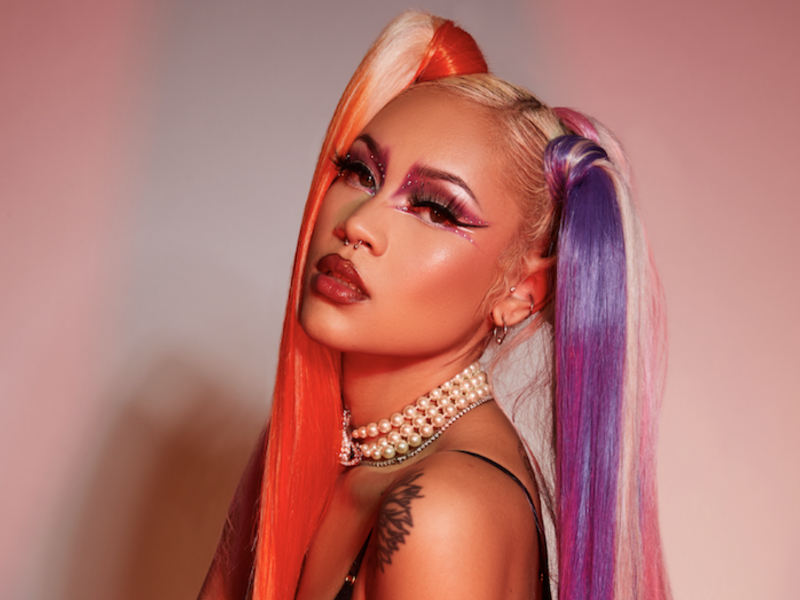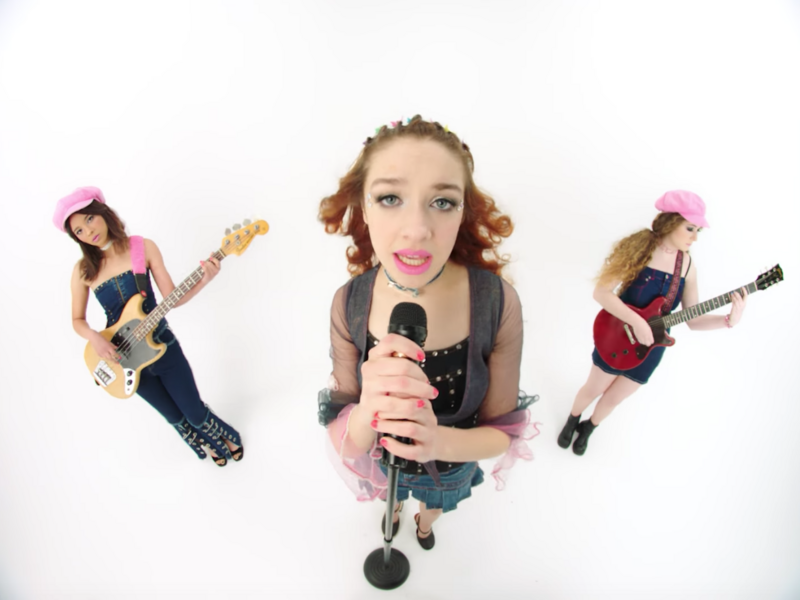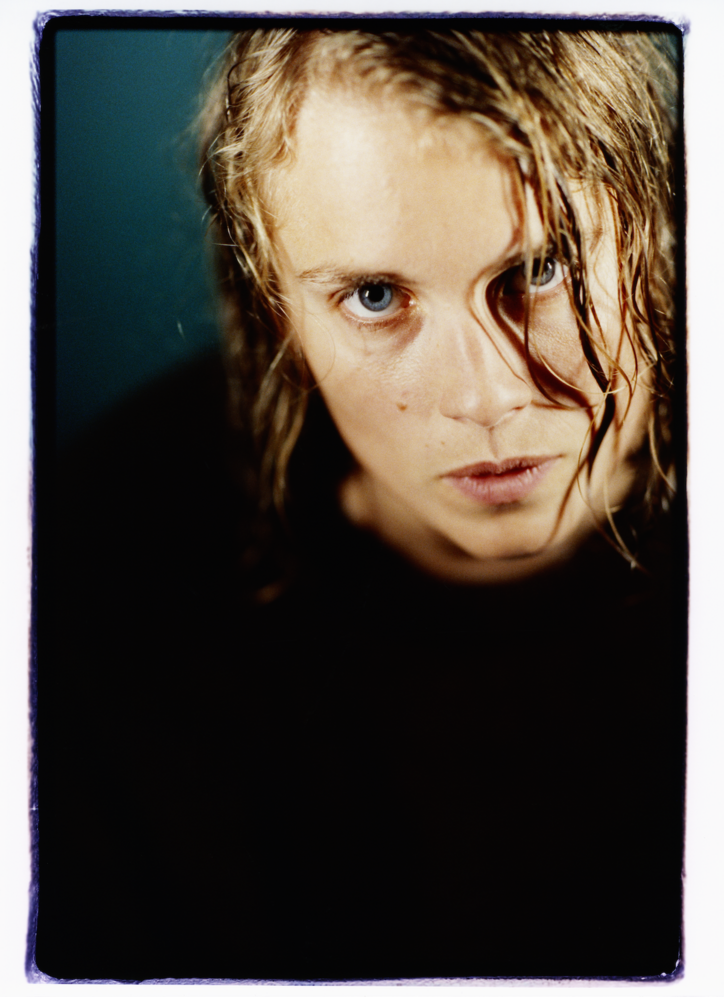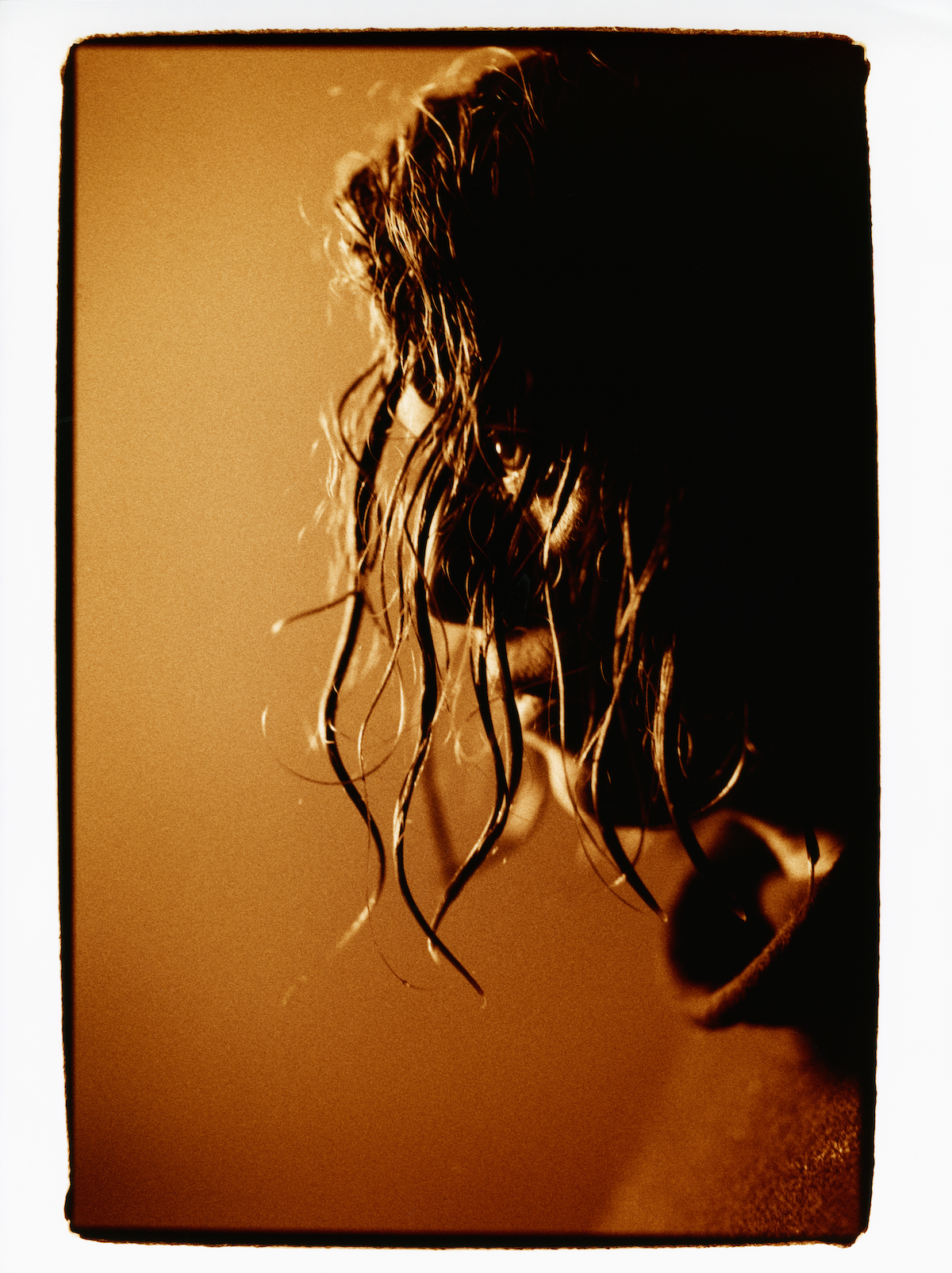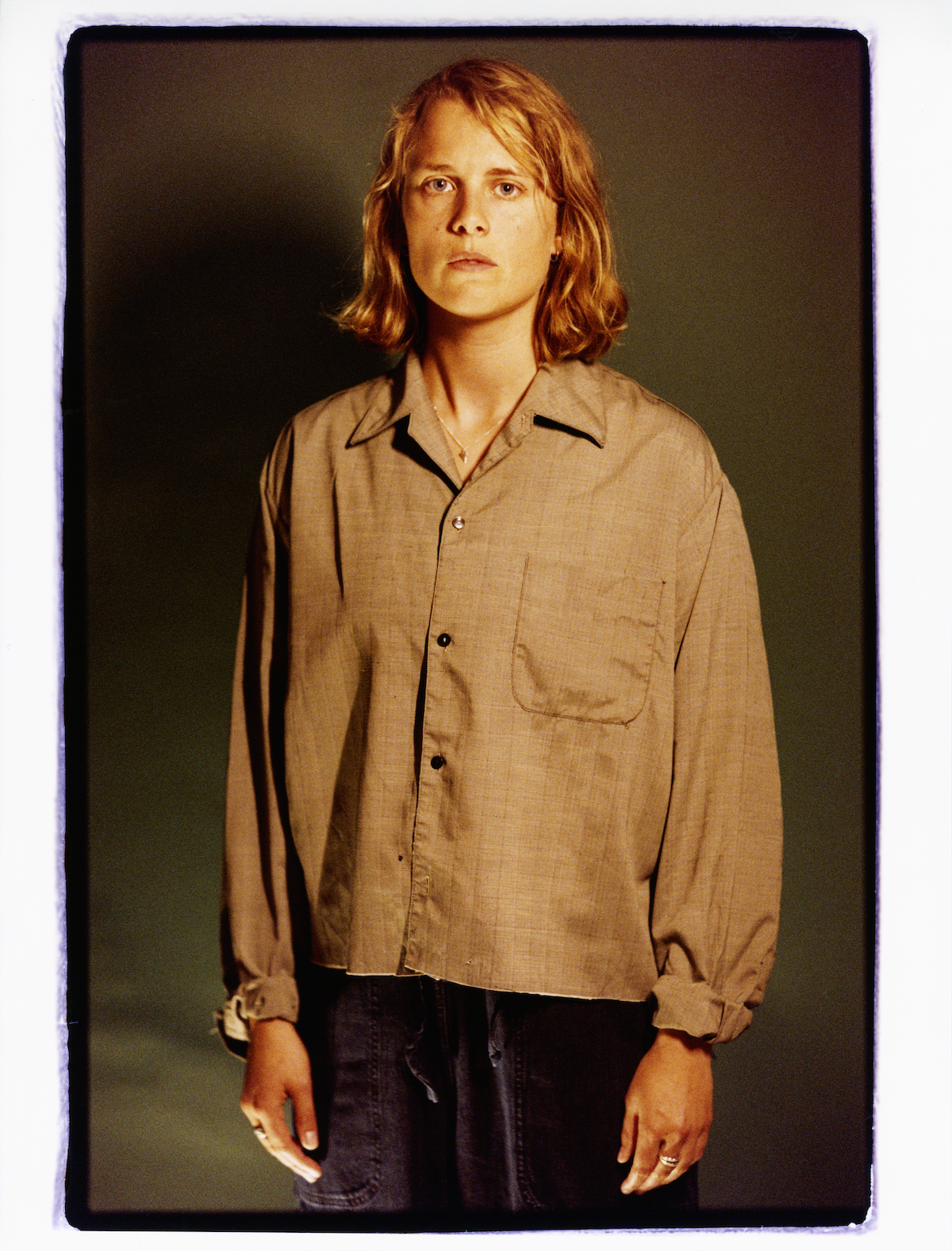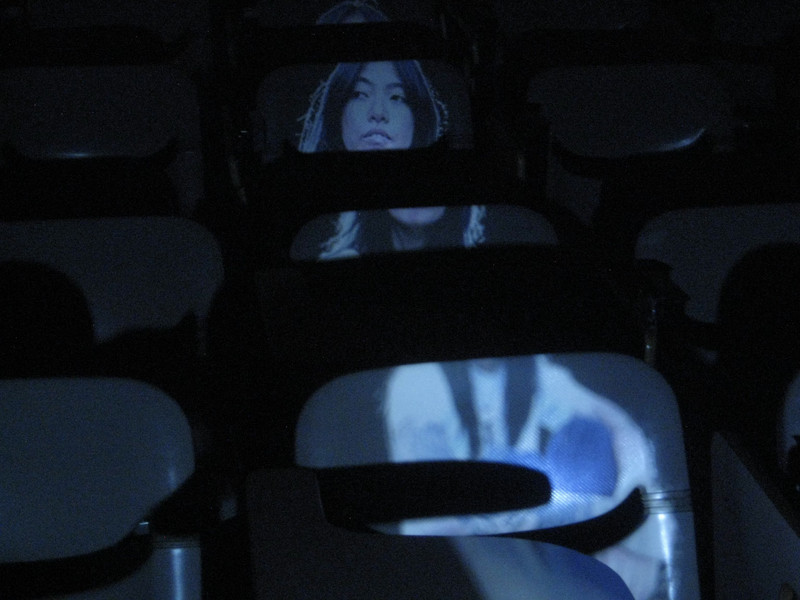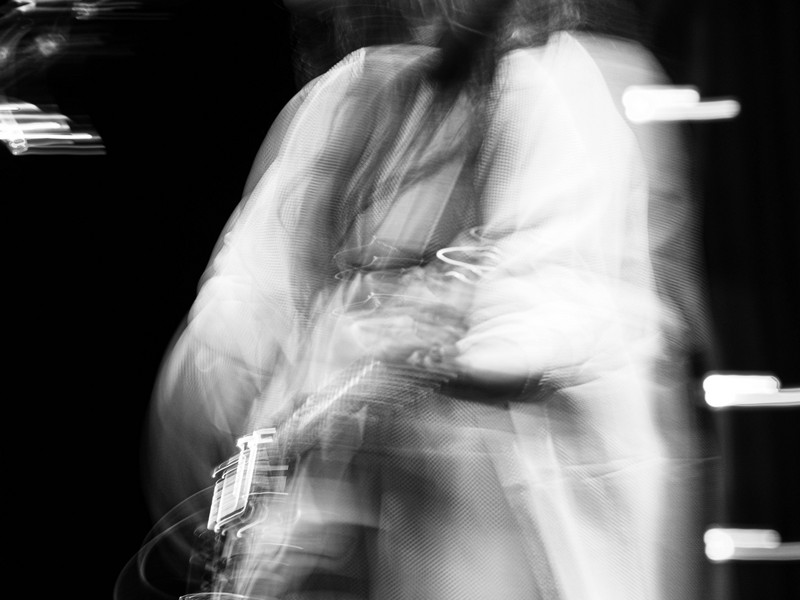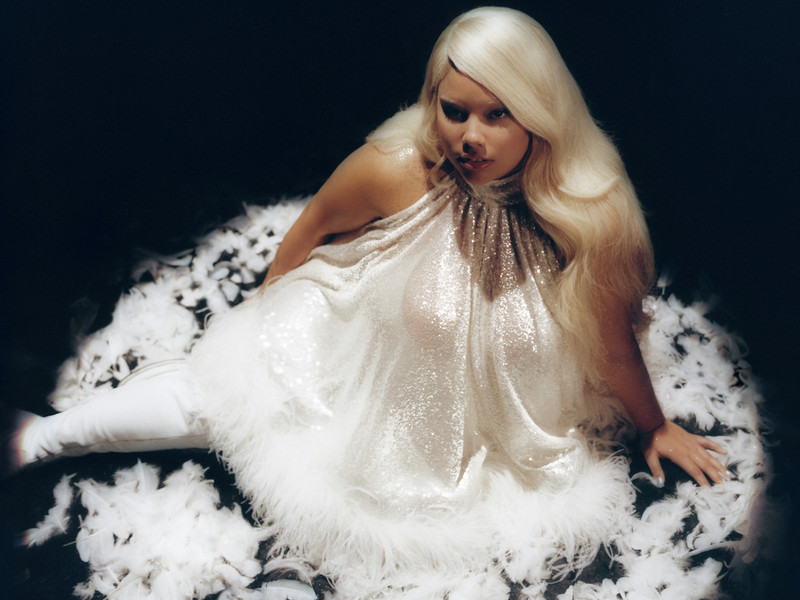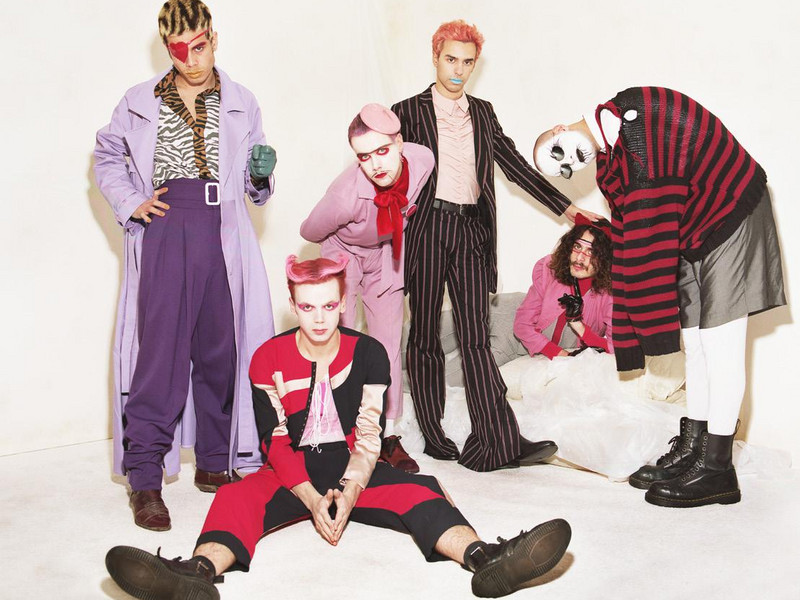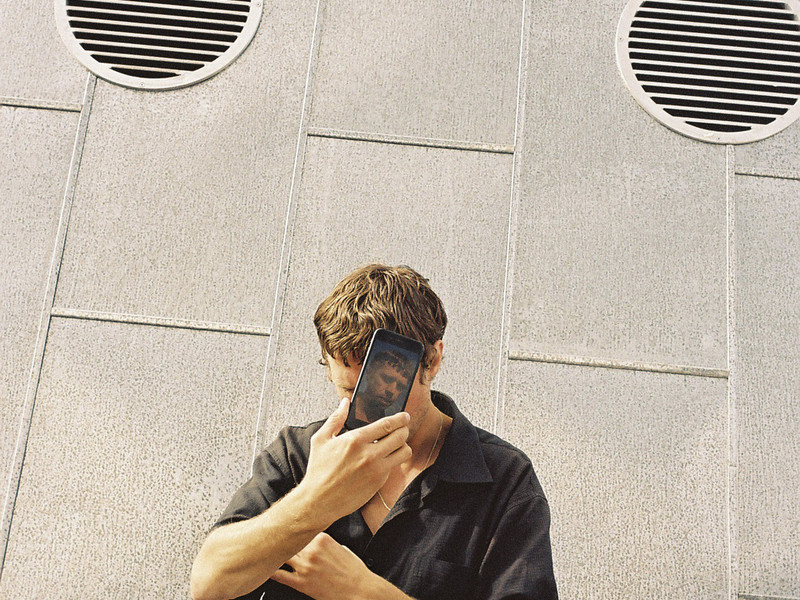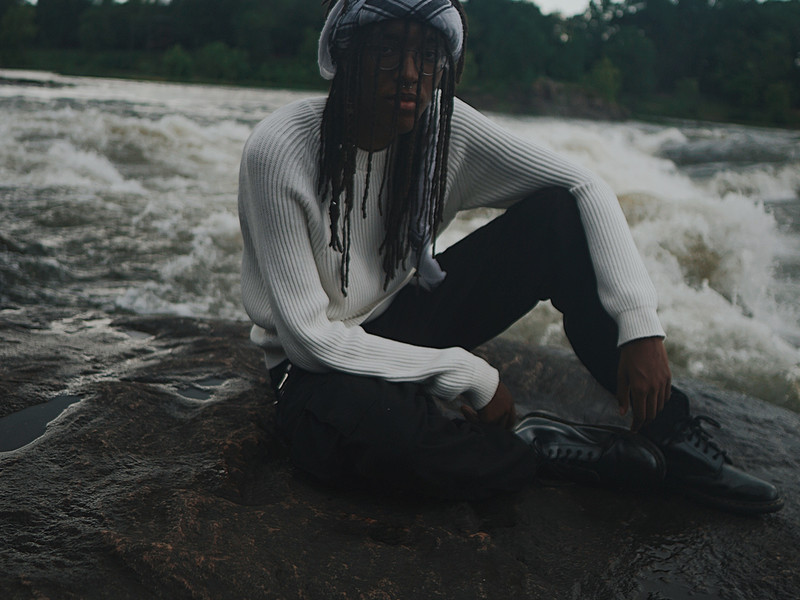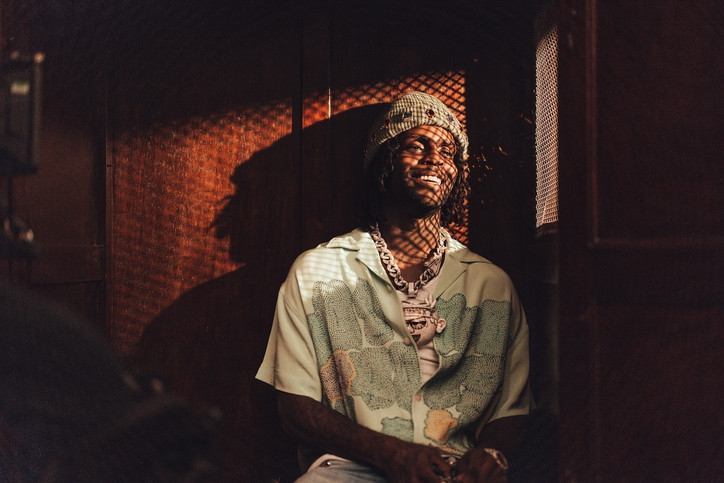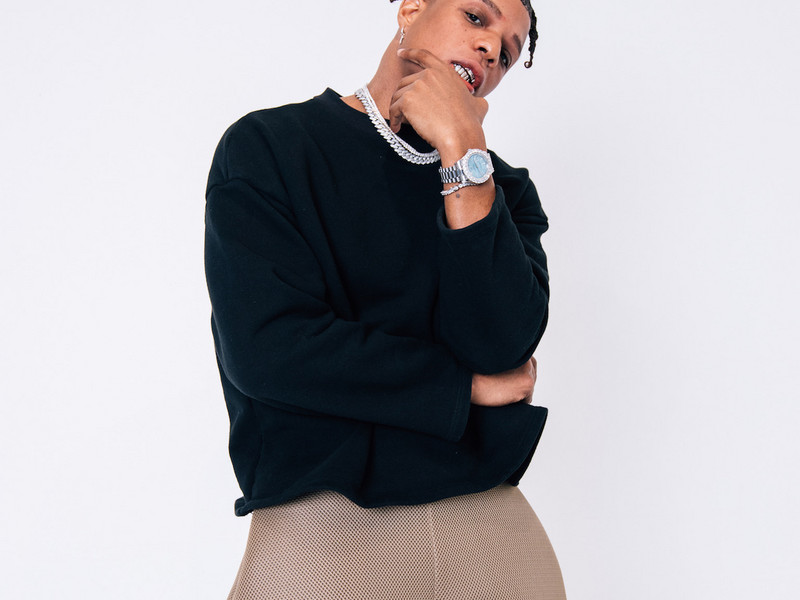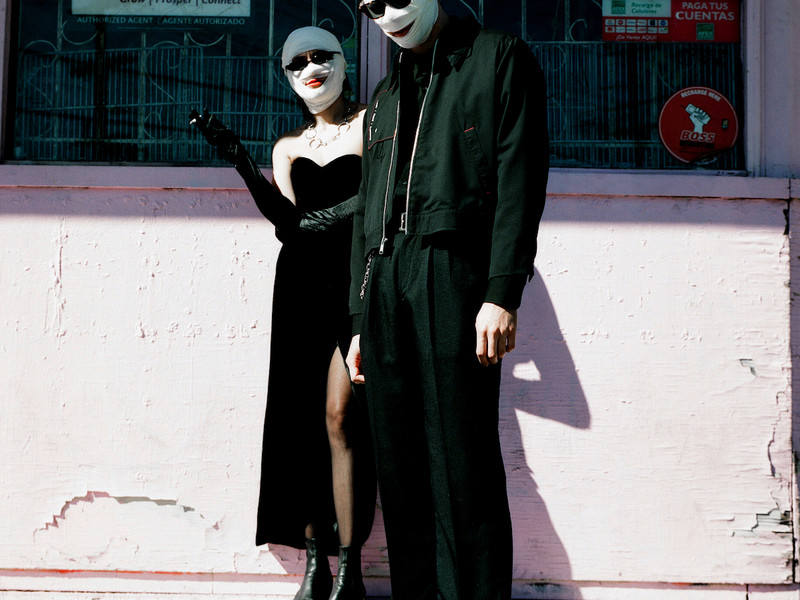Deep Cuts: Kaili
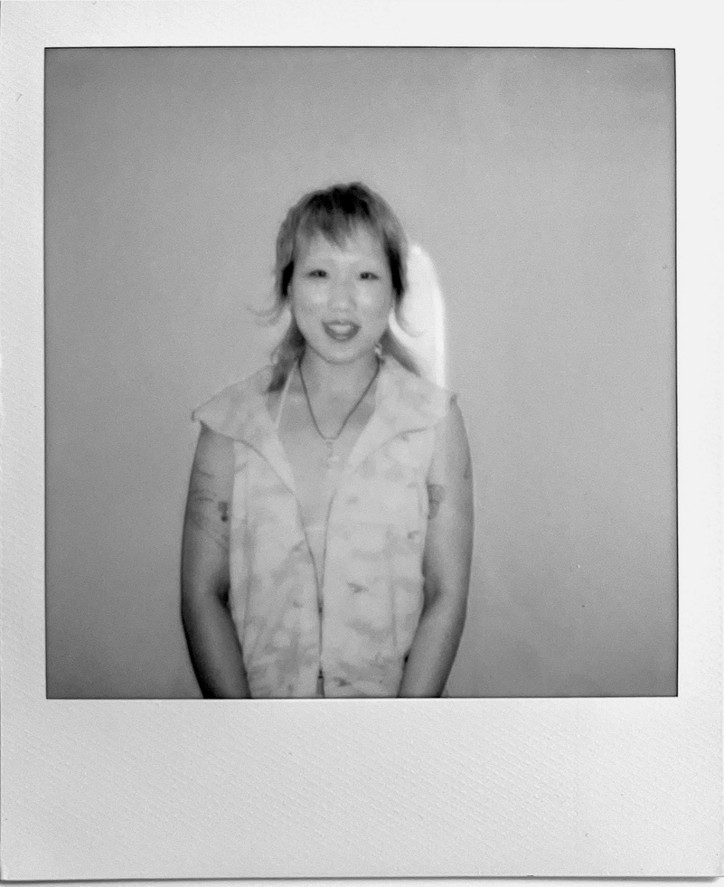
On a night out, you can catch glimpses of her from the booth, a red-bobbing pixie cut, but even out of sight, her energy permeates through the crowd. With a discography deeply influenced by the 90s and 2000s U.K. dance scene, and the occasional pop-punk anthem, the feeling that Kaili evokes is first and foremost flirty.
The rooms she plays pulse with drum-heavy beats, bodies glisten under angelic melodies, and Kaili floats over the ebbs and flows of the music she selects. The chemistry between Kaili and her crowd is organic and spontaneous, no one night or mix feels the same. But within her genre-bending setlists, you’ll find consistency built upon a cultivated foundation of music history and cultural study. In the midst of the UK Garage renaissance, Kaili has become a point of confluence between pop and subculture; past and future sound.
In an exclusive mix for office magazine, Kaili shared a glimpse into her own music history.
Walk me through this mix. How did you approach it?
When I was making this mix in particular, I really wanted something that was kind of flirtatious. I always think about the contrast between intensity and softness. Even when I play out, I'll try to mix up sort of varying degrees of soft, tender moments with driving beats. When I was making this mix, I definitely wanted to have that flirtatious slow entry into something that lets you fall into this trance without you maybe even noticing it.
How do you approach a live set differently from a mix?
For live sets, I tend to think about the whole flow of the evening, you know, who else is on the lineup? What type of venue is it? What time of night am I playing? All those factors go into the energy level that I want to come across. If you play a closing set, the energy progression is going to be a lot different than if you play peak. A lot of times, when I promote, I'll open up so that other people can have the peak time slots. So mostly, I think about how much energy I'm trying to absorb and transmit to the dancers. And then I think about the pacing. Do I want it to get faster? Do I want it to slow down? Do I just want to stay at this high energy the whole time? Then what genres compliment what I’m trying to achieve, and what's new, what's fresh? What am I excited about playing versus stuff that is a timeless and classic that will always like go off?
So do you err on the side of fan favorites or deep cuts?
I like to go with deep cuts, but I also tend to play a lot of fan favorites, depending on the venue.
How has your taste in music evolved, where did it start?
So my early childhood I spent in Stockton, California, and then moved to the DMV/DC area. And when I was growing up, I was classically trained. My parents basically got me into violin and piano when I was in elementary school and all around the house they played classical music. When I was growing up, I was classically trained. My parents basically got me into violin and piano when I was in elementary school and all around the house they played classical music. When I started getting on Tumblr it was a huge, you know, eye-opening experience because I would've considered myself a pretty sheltered kid before that. I started getting more into experimental stuff, and then got into dance music and I learned I was really interested in the sociological stuff around it. I started researching some of the cultural elements and the ethnographic elements of dance music. Since I started classically trained, I had an ear for instruments. And then, because I listened to a lot of internet music, I started thinking about machines and repetition and those sonic elements of noise and imperfection. And then, you know, then I got super immersed in the dance music world in college, which just thrust me into this world.
What cultural elements were you interested in with dance music?
I guess it was really fascinating how certain genres came up in certain areas and were influenced by what sort of drugs people were doing. Have you heard of the book Energy Flash? It’s a really thick book about dance music. But, I took this seminar about electronic dance music, and of course, EDM was huge and I was like “Oh, this sounds interesting. I like music, I’ll check this out. But it wasn’t about EDM at all. It was more about the actual roots of electronic dance music. And that was a really fascinating entry point into the methods of creating electronic music. I remember one of the first things we talked about was disintegration loops. For example, I was really fascinated by how in Northern parts of England, it was super industrial, super harsh weather conditions, most people worked in factories and had a lot of negativity towards government and all these stresses. And, they’d do like a lot of drugs. And then in the 90s and 2000s that contributed to the rise of Jungle, this super dark, speed motivated sound.And that's an interesting complement to, you know, the acid and molly fueled hardcore raves, because those drugs were engineered for more of a euphoria feeling than just pure intensity. You can see that being reflected in the music that's coming out in the 90s and 2000s. Same thing with UK garage, which is one of my favorite genres. It's really interesting to hear how it turned from being this champagne-type genre and slowly got darker and people became more experimental with it. And then you have grime coming out of that and grime was way more intense and dark. I don't know, I love studying these genres and sort of how they progressed over time.
What’s a specific track or record that’s been particularly influential to you?
I’d pick the Allyarecords 10-inch by Hyperdub, which I own, because I was really into the UK bass scene. So my favorite label at the time was Hyperdub, which is what this record is off of. And this producer Scratcha DVA is one of my favorite DJs slash selectors–definitely a huge influence on the way that I think about mixing music and combining different genres. He's so fluid, and so creative when it comes to his mixing style. And this record, is really fun, kind of a hybrid form of different club music that I was listening to. So I was listening to like UK funky and newer, deconstructed club, is what they used to call it. It’s just kind of like a fun, kind of weird, like off-kilter, not something that just fits into a format. I thought the record was just like really cool aestheticly as well. It’s a clear 10-inch. It’s so rare, it feels very novel. It represents such a crystallized moment in my music listening and my DJ learning path. Also, it's just one of the actual physical artifacts that I feel emotionally resonates with me.
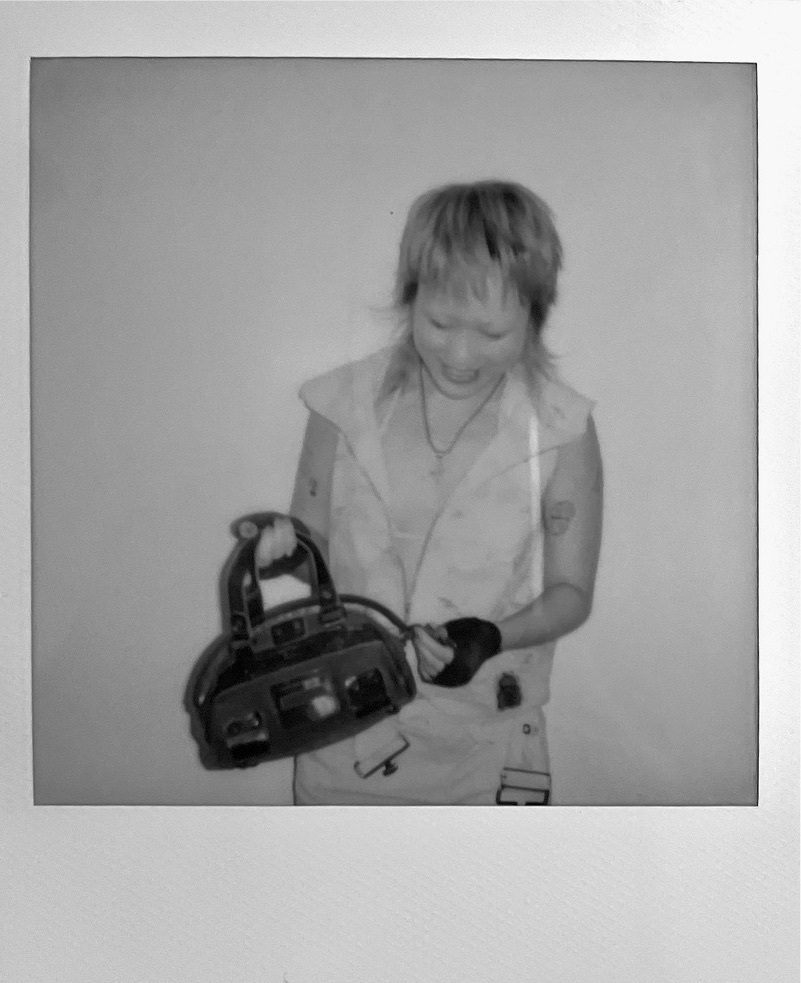
So tell me a bit about the genres and songs in this mix.
I started it off with this Australian artist I’ve been really into lately, fatshaudi. And then I got into some UK Garage. Physical therapy is one of my favorite garage selectors; he does these really amazing genre specials on NTS and I just love listening to them. There's this bae bae track; she's from LA and we used to DJ a lot together and I think she's really doing some cool stuff in LA right now. She has this party, that's called hood rave. I also go into some baile funk, new club cuts, and a lot of breaks. I’ve been really into that Vhoor track, which is kind of a blend between a Miami bass and baile funk type sound. I threw in this Lebanese pop song by Nancy Ajram that’s been heavy on my listening rotation as well. Overall, I just wanted disparate sounding genres to mesh together.
What else are you listening to right now?
There’s this new record by Organ Tapes. I listen to a lot of mixes and a bunch of just like eclectic funk, but I also throw in some like LA rap, some Kpop sometimes. It’s just all over the place. I’ve been feeling Organ Tapes. I’ve been feeling some ambient stuff on SoundCloud. Oh! There’s this record by Eterna and Amalcrossing. I’ve been listening to that a lot.
Tell me a bit more about that moment your faith in nightlife was restored. What is nightlife at its best for you?
I like when you can see people from a lot of different walks of life. I really love seeing heads and divas in the same space. And I really like when, there's a lot of just, positive energy. I like to feel like you're part of something that's not just about you. The music obviously has to be really good. But it's mostly about the attitude and the reception, you know. If people are really open minded and having a good time and being friendly and nice and not beefing like that's really nice. Just having a true sense of autonomy and, like, pos–I don’t want to say positive vibes–but just energy that’s really infectious. I think a lot of times what can take away my faith is people being too stuck up to enjoy themselves.
I feel like DJs have this really unique opportunity to move people out of themselves and into a shared experience. What do you hope to move your crowds towards?
I really like when crowds are engaged, but also are feeling themselves. I love when I can see queer people and femmes just really like having a good time and really feeling good about dancing and being in their bodies. I love seeing people like making out. I love the sensual experience of dancing and the pure bliss of it. But I also really try hard to expose people to things and put people on to new sounds. It makes me happy when people can get excited about tracks they've never heard before, or to have people be like, “I really appreciated you playing this.” So I'm definitely always moving towards having people feel good, but also, including an introduction, perhaps, or a fun treat for the heads.
People are also paying more attention to DJs now, and looking for some of those niches, but there isn’t always the cultural grounding. How do you try to connect the two?
I love things that sort of play on pop culture. I think a really popular thing is edits of pop music or r&b, something familiar but with a little twist, which can be the beat pattern.So it cross-pollinates regional styles with more familiar, anthemic samples. I think that's really fun. And it goes! People really respond to it on the dance floor.
People's curiosity really lends itself to doing a lot of research on their own; it kind of happens organically. But I sometimes struggle with just the way that information dissipates. Specifically with Instagram and TikTok. I feel like it can be pretty difficult to get a lot of good information or create information. Sometimes I think it's just kind of an awkward period for the internet and social criticism. But as far as DJs themselves, I feel like there's a lot to be said about just playing sets that people will come across in the wild, and they hear new things. There's so much cool stuff that's being made all over the world that doesn't really get shared as much.
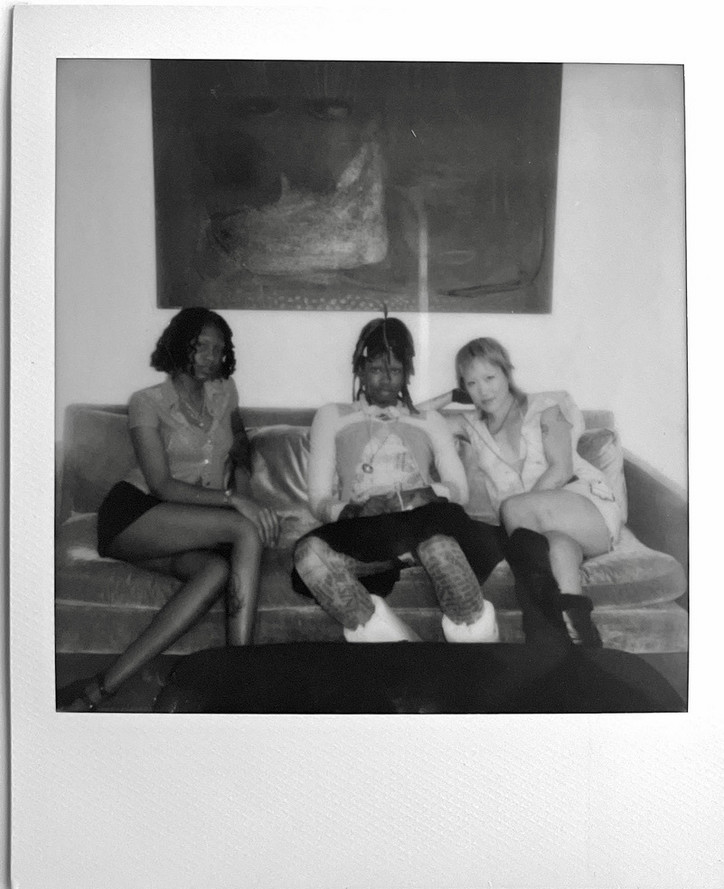
This piece is the first of a three part series profiling DJs driving the NYC music scene.

